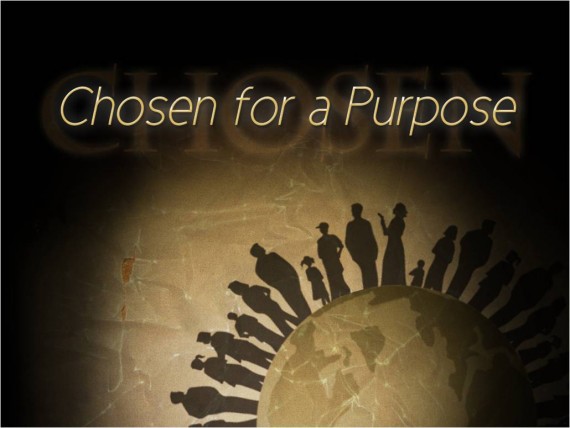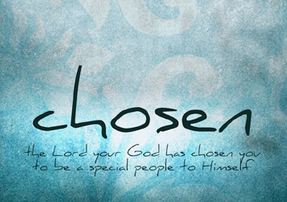Christians like to claim that we are guided by Scripture and controlled by the Holy Spirit.
But I was recently talking to my insanely wise and beautiful wife, Wendy, and she pointed out that the two things which seem to guide and control Christians are actually fear and guilt.
We are guided by fear and controlled by guilt.

My wife used the example of a typical church-missionary relationship. When raising support, some missionaries use guilt to get others to support them. They shows pictures of starving children, or tell stories about how people without the gospel are headed for hell. But then, when they are on the missionary field, and not much is happening through their ministry, they feel compelled to embellish what they are doing so that it the money which people are spending on them is well-spent. They are afraid that if they “tell it like it is,” the money will stop.
But when they send glowing reports of all that God is doing on the mission field back home, those in the pews feel even more guilty because they don’t see God “working” in their own life in the same miraculous ways. They feel guilty that they are not following Jesus overseas.
The missionaries also get put up on a pedestal so that when they return home on furlough, they have to conform to a certain standard of holy behavior which matches the pedestal that has been built for them. Furthermore, even though the missionary may be exhausted from working overseas, they feel compelled to visit people in their homes and go speak in a myriad of churches just so that they can maintain their financial support.
And on and on it goes, in an endless cycle of fear and guilt.
Fear and Guilt in Church
Of course, this cycle goes beyond just the relationship between churches and the missionaries they support. Guilt and fear are at the heart of preaching, of doing what our pastor says, of attending church regularly, and of putting on the smiley face for Sunday services.
The pastor wants to prove that he is worthy of his pay (even though he is afraid he is not), and so must use manipulative practices to keep people coming to church and giving their money. He fears that if he does not keep this up, he will lose his job. He also fears that his sermons are not as good as the ones the pastor down the street preaches, and fears he will lose his people to that other church. The pastor, robbed of life by fear and guilt, uses fear and guilt to control others.
People fear displeasing their pastor, since his is “the man of God,” and so often do what he says without question, because he speaks for God and knows what God wants better than they do themselves. The people, living under fear and guilt of what will happen if they do not obey, do not have the freedom to follow Jesus for themselves.
People are afraid to miss a Sunday service because of what others will think or say about them. Fear and guilt keep us returning to situations where only more fear and guilt get piled upon us.
People are afraid to let others know about their sins, temptations, struggles, and doubts, and so put on a smiley face for church services and Bible studies. Since everybody is doing this, nobody realizes that everybody is afraid that others will discover who they really are, and feel guilty that they seem to deal with issues and temptations that nobody else faces. Fear and guilt keep us from being honest and from opening up to others about our struggles.

What’s the solution?
I think we all struggle with fear and guilt in numerous ways. We experience fear and guilt in our jobs, our marriages, our families, and our finances.
But I also believe that Jesus wants to free us from both. I do not think we were meant to live life wrapped in the chains of fear and guilt.
How do we break free?
We follow Jesus.
He will lead us into freedom. The journey is long, but it is a journey worth taking. As we walk with Jesus, we will discover that the one person who knows everything about us is also the one person who loves and accepts us completely. When we come to that realization, the fear and guilt begin to wash away, and we are able to begin to live in freedom with other people as well.
If you are struggling with fear and guilt, let me recommend three things.
First, don’t become fearful or guilty about struggling with fear and guilt. Just recognize the fear and the guilt.
Second, let Jesus know that you want to be led by Him instead. Just tell Him. And keep telling Him.
Finally, trust that Jesus will lead you. Over the course of the next couple years, as you learn to live in recognition of your fear and guilt, and as you learn to trust that Jesus is leading you to where He wants, you will look back over your life and see how much more liberated and free you have become. You will be shocked at how much more forgiven, loved, and accepted you feel.
Do you struggle with fear and guilt? Do you even know that you struggle with it? Do you use it to control others? What sort of strategies have you found helpful in seeking to liberate yourself and others from fear and guilt? Please share below!




 Arthur Sido recently brought to my attention that in 2014,
Arthur Sido recently brought to my attention that in 2014, 
 The church is a group of God’s elect (cf. Rom 8:33; Eph 1:4; Col 3:12; 1 Thess 1:4; 2 Tim 2:10; Titus 1:1; 1 Pet 1:1-2; 2:8-9; 5:13; Rev 17:14). As we have seen previously,
The church is a group of God’s elect (cf. Rom 8:33; Eph 1:4; Col 3:12; 1 Thess 1:4; 2 Tim 2:10; Titus 1:1; 1 Pet 1:1-2; 2:8-9; 5:13; Rev 17:14). As we have seen previously, 
 Just as election does not lead to our membership within the church, but is rather a result of being incorporated into Christ’s Body, so also, election is not what leads to our redemption, but is rather the result of redemption.
Just as election does not lead to our membership within the church, but is rather a result of being incorporated into Christ’s Body, so also, election is not what leads to our redemption, but is rather the result of redemption.


 Your vote probably will not matter very much. The people you vote for probably won’t win. In fact, if the people you vote for do win, they will probably turn out to be just as corrupt as the people you voted out. And don’t think for a second that you are going to effect change in your city, county, state, or country by casting a vote on election day. Change doesn’t happen that way. True and lasting changes happens only through lives submitted to Jesus Christ, which is true of very few elected officials, and even if we did elect Christian politicians, it would not be right for them to impose Christian morality on the rest of society like some sort of Christianized Sharia Law.
Your vote probably will not matter very much. The people you vote for probably won’t win. In fact, if the people you vote for do win, they will probably turn out to be just as corrupt as the people you voted out. And don’t think for a second that you are going to effect change in your city, county, state, or country by casting a vote on election day. Change doesn’t happen that way. True and lasting changes happens only through lives submitted to Jesus Christ, which is true of very few elected officials, and even if we did elect Christian politicians, it would not be right for them to impose Christian morality on the rest of society like some sort of Christianized Sharia Law.
 All I am saying is that if you did raise your voice by voting, you have no basis on which to raise your voice and criticize the government for the decisions it makes and directions it goes. Voting is not a replacement for being the cultural conscience, but it is the first step in doing so. If you want to call our leaders to account for their actions and decisions, then the first step in having the right to do so is to get out and vote.
All I am saying is that if you did raise your voice by voting, you have no basis on which to raise your voice and criticize the government for the decisions it makes and directions it goes. Voting is not a replacement for being the cultural conscience, but it is the first step in doing so. If you want to call our leaders to account for their actions and decisions, then the first step in having the right to do so is to get out and vote.